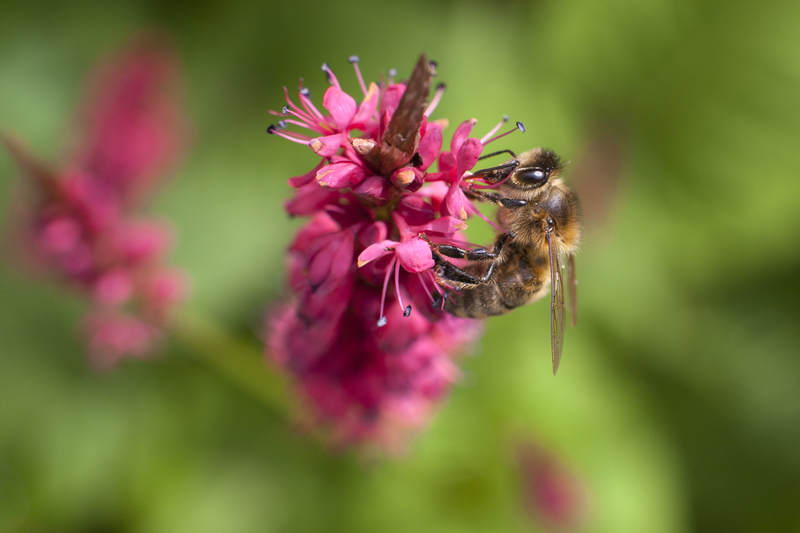Unlock Your Gardening Potential with These 9 Essential Tips
Posted on 07/09/2025
Unlock Your Gardening Potential with These 9 Essential Tips
Are you ready to elevate your gardening skills and transform your green space into a lush, vibrant haven? Whether you're a seasoned gardener or a beginner digging into the soil for the first time, mastering easy and effective gardening techniques can make all the difference. In this comprehensive guide, you'll discover 9 essential tips to truly unlock your gardening potential. Invest just a little time in these garden secrets, and watch your plants thrive like never before!
1. Understand Your Climate and Soil
One of the fundamental gardening tips is knowing both your local climate and the type of soil in your garden. Understanding these factors helps you select suitable plants and avoid unnecessary disappointments.
Why Climate Matters
- Plant Hardiness Zones: Every region has a specific USDA Plant Hardiness Zone. Find yours and choose plants that thrive in that range for a flourishing garden.
- Weather Patterns: Keep track of seasonal changes, rainfall, and average temperatures to time your planting and harvesting.
The Importance of Soil Health
- Soil Testing: A simple soil test reveals your soil's pH, texture, and nutrient levels. Do this before planting to make informed amendments.
- Organic Matter: Add compost, leaf mulch, or well-rotted manure to enrich the soil, improve structure, and boost plant growth.

2. Choose the Right Plants for Your Space
Selecting the right plants is crucial to unlocking your gardening potential. Each plant has specific lighting, space, and care needs. Consider factors like sunlight exposure, plant size, and maintenance requirements.
- Sun-loving Plants: Position crops like tomatoes, sunflowers, and lavender where they'll receive plenty of direct sunlight.
- Shade-tolerant Options: Ferns, hostas, and impatiens thrive in shadier corners.
- Native Species: Local plants are naturally adapted to your region's climate, needing less water and care.
Pro Tip: Visit local nurseries for regional varieties and expert advice tailored to your garden's needs.
3. Practice Smart Watering Techniques
Efficient watering not only conserves resources but also promotes deeper root growth and healthier plants. Implement these garden watering techniques for maximum success:
- Water Deeply, Not Frequently: This encourages roots to grow deeper, making plants more drought-resistant.
- Morning Watering: Water early in the day to reduce evaporation and fungal diseases.
- Install Drip Irrigation or Soaker Hoses: These systems deliver moisture directly to the roots, minimizing waste and promoting strong growth.
- Mulching: Mulch retains soil moisture, suppresses weeds, and regulates soil temperature.
4. Feed Your Plants Wisely
Plants extract nutrients from the soil, so your role as a gardener is to replenish and balance these elements for robust growth. Avoid over-fertilization, which can harm plants and the environment.
- Use Organic Fertilizers: Compost, worm castings, and seaweed extract are gentle on your plants and great for soil health.
- Feed at the Right Time: Apply fertilizers during the plant's active growing season for best results.
- Follow Application Rates: More is not always better--stick to recommended dosages to prevent root burn.
5. Master the Art of Pruning
Pruning is an essential gardening skill that enhances both the health and appearance of your plants. It removes dead or diseased wood, shapes plants, and encourages vigorous new growth.
- Clean Your Tools: Use sharp, sanitized pruners to avoid infecting plants.
- Know What to Prune: Remove dead, crossing, or overcrowded branches for better airflow and sunlight penetration.
- Timing is Key: Prune flowering shrubs after blooming and fruit trees in late winter or early spring.
6. Stay Ahead of Weeds and Pests
Unwanted weeds and pests can quickly undermine your gardening efforts. Take proactive steps to keep your garden healthy and productive:
- Mulch to Block Weeds: Cover bare soil with organic mulch to suppress weed growth.
- Hand Weed Regularly: Removing small weeds by hand is easier and less damaging to your plants.
- Encourage Beneficial Insects: Ladybugs and lacewings naturally control aphids and other garden pests.
- Use Natural Pesticides: Neem oil, insecticidal soap, and diatomaceous earth are safe alternatives to chemicals.
7. Rotate Crops and Diversify Plantings
Crop rotation is a time-tested method to build soil fertility, reduce pest buildup, and optimize yields. Mixing plant varieties helps prevent the spread of disease and pests.
- Rotate Crop Families: Move crops to a different bed each year to avoid depleting soil nutrients and breaking pest cycles.
- Diverse Planting: Companion planting and polyculture create resilient gardens and boost yields.
- Cover Crops: Grow nitrogen-fixing plants like clover or peas during off-seasons to restore soil health.
8. Keep a Gardening Journal
A dedicated gardening journal helps you learn from experience, track progress, and plan for future seasons. It's a simple tool that can elevate your gardening potential immensely.
- Record Planting Dates: Tracking when and where you plant crops offers insight into growth cycles and harvest times.
- Monitor Plant Health: Jot down observations on pests, diseases, and weather for each season.
- Reflect and Plan: Review entries each year to improve your gardening strategies continuously.

9. Stay Curious and Keep Learning
Gardening is an ongoing adventure, and even the most experienced gardeners continue to learn and adapt. Stay up to date with innovative techniques, experiment with new plants, and connect with fellow enthusiasts for inspiration.
- Read Gardening Books and Blogs: Knowledge is power when it comes to implementing advanced gardening tips.
- Join Local Clubs and Online Forums: Exchange ideas, ask questions, and build community with other gardeners.
- Attend Workshops and Classes: Learn hands-on skills and discover the latest eco-friendly gardening solutions.
Unleash Your Inner Gardener Today!
Unlocking your gardening potential isn't about having the "perfect" garden -- it's about nurturing your skills, embracing experimentation, and transforming challenges into learning opportunities. By applying these nine essential gardening tips--from understanding your soil and climate to practicing crop rotation and pest control--you'll cultivate healthier plants and enjoy bountiful harvests.
Get your hands in the soil, observe the subtle changes each day, and remember that every garden tells a story of curiosity and care. Embrace these gardening secrets, and let your love of plants flourish!
More Resources to Grow Your Gardening Skills
- Farmer's Almanac Gardening Guides
- Gardener's Path Guides & Solutions
- Royal Horticultural Society Gardening Advice
For more proven ways to unlock your gardening potential, bookmark this page, sign up for local workshops, and keep learning. Your garden--and your gardening skills--will thank you!
Latest Posts
Elevate Your Garden with 3 Essential Weed Tips
Keeping Garden Plants Safe During Frosty Winters
Captivating Garden Designs for Your Little Ones

